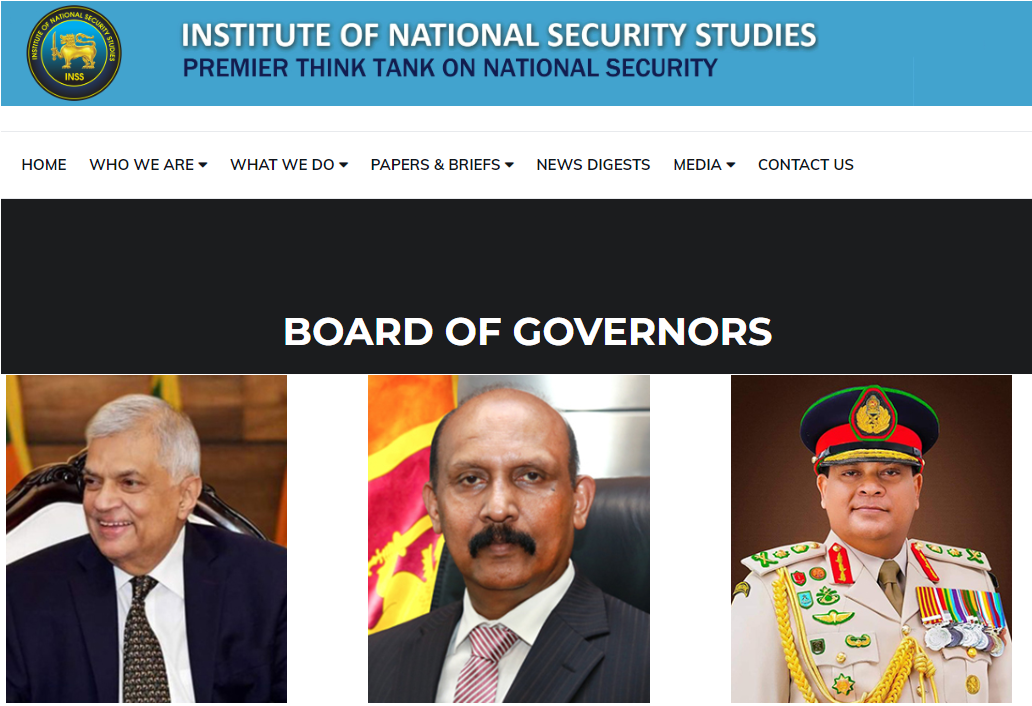Sri Lankan Institute of National Security Studies (INSS) has come up with a concept paper called “Strategic Implications of Hosting Foreign Military Bases in Sri Lanka: A Djibouti-inspired Approach”.
It says that “By adopting a Djibouti-inspired approach, Sri Lanka can strategically utilize foreign military bases to enhance its economic prospects and security capabilities. Learning from Djibouti’s successful model, Sri Lanka can transform its geopolitical significance into tangible advantages, contributing to regional stability and economic development. However, careful consideration of sovereignty, diplomatic nuances, and strategic alignment with national interests remains paramount.”
The concept paper has been published by popular website LankaeNews.
INIS is headed by Sri Lanka president Wickremasinghe.
Introduction:
Sri Lanka, positioned at the crossroads of major shipping routes in the Indian Ocean, can draw inspiration from Djibouti’s successful utilization of foreign military bases for economic and strategic advantages. This essay explores how Sri Lanka could adopt a Djibouti-inspired approach to leverage foreign military bases for its benefit.
Djibouti’s Model:
Djibouti, a small East African nation, has strategically capitalized on its location at the entrance to the Red Sea, hosting military bases of various foreign powers, including the United States, China, and France. Sri Lanka can learn from Djibouti’s experience to navigate the complexities of such arrangements.
Economic Benefits:
Infrastructure Development:
Similar to Djibouti, hosting foreign military bases would necessitate substantial infrastructure development. Sri Lanka can leverage this opportunity to enhance its ports, airports, and logistical capabilities, attracting foreign investments and fostering economic growth.
Job Creation and Local Economy:
The influx of military personnel and associated industries can create job opportunities for locals. Sri Lanka can learn from Djibouti’s success in developing a service-oriented economy catering to the needs of the military personnel stationed in the region.
Trade and Commercial Opportunities:
Djibouti has positioned itself as a key trade hub due to its strategic location. Sri Lanka can follow suit, using the presence of foreign military bases to enhance its standing as a regional economic center, attracting international shipping and trade.
Security Benefits:
Enhanced Defense Capabilities:
Hosting foreign military bases allows for the sharing of intelligence, joint training, and technological collaboration. Sri Lanka can strengthen its defense capabilities through these partnerships, deterring potential threats and contributing to regional stability.
Counterterrorism Cooperation:
Collaborating with foreign military forces can enhance Sri Lanka’s ability to address internal and regional security challenges, particularly in the realm of counterterrorism. Information sharing and joint exercises can improve response capabilities.
Diplomatic Leverage:
Djibouti has effectively utilized its position as a host to major powers to garner diplomatic support. Sri Lanka can leverage its role as a strategic partner to enhance its influence in international forums, strengthening its diplomatic standing.
Challenges and Considerations:
Sovereignty and National Interests:
Diplomatic Balancing:
Sri Lanka should navigate diplomatic relations carefully to avoid being drawn into the geopolitical rivalries of major powers. A balanced approach, similar to Djibouti’s, is essential to derive benefits without becoming entangled in conflicts.
Conclusion:
By adopting a Djibouti-inspired approach, Sri Lanka can strategically utilize foreign military bases to enhance its economic prospects and security capabilities. Learning from Djibouti’s successful model, Sri Lanka can transform its geopolitical significance into tangible advantages, contributing to regional stability and economic development. However, careful consideration of sovereignty, diplomatic nuances, and strategic alignment with national interests remains paramount.
